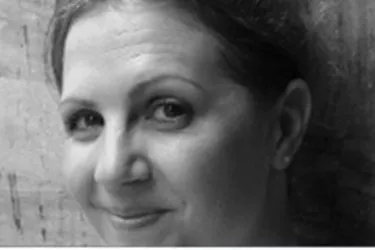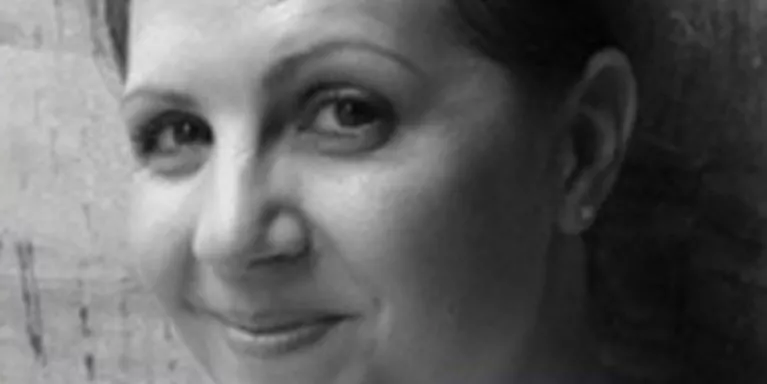The GP who restored my faith in doctors
After a lifetime’s bad experiences, Debbie finally found a doctor who got her and her mental health.
Debbie volunteers at Leeds Mind.
TW: this blog contains references to self-harm and suicidal thoughts.
Earlier this week I had a very unexpected positive experience with a GP at my surgery. I didn’t know, when making the appointment, who I would see, and it turned out to be a gentleman I had never met before. I remember being called in for my appointment thinking it was going to be a complete waste of time. How wrong I was.
I had decided to make the appointment following a rapid decline in my mental health over the past few weeks. I had resorted back to self-harming as a way of coping with intense emotions and suicidal thoughts, and wanted to ask the GP if they would increase the dose of my antidepressant medication. It was the only proactive thing I felt I could do to try to cope better with the self-hatred and torment I was facing.
“When the GP asked me to explain a little about why I’ve been feeling so low in recent weeks, the floodgates opened.”
I have struggled with suicidal ideation as a symptom of my borderline personality and complex PTSD for a number of years, but have recently been triggered by a complaints process against a private therapy provider who abruptly ended therapy with me towards the back end of last year.
I completely broke down when the GP asked me how he could help me during the appointment. I haven’t been able to reach out to family over the past few weeks, and while I have spoken to two friends about how low I have been feeling, I’ve been conscious of not over burdening them with just how horrific I have felt. So when the GP asked me to explain a little about why I’ve been feeling so low in recent weeks, the floodgates just opened.
He offered me a safe space to be as raw and vulnerable as I needed to be, and I felt he genuinely cared and was concerned for my safety. I have seen previous GPs and not felt the same empathy, kindness and warmth the doctor showed me. He also validated my experiences and apologised for some of the challenges I’ve faced in accessing support and treatment, even though it wasn’t his fault.
In that moment, I felt he saw me; that he understood the depth of my pain and knew how scared I was of myself. He took immediate action to try to keep me safe, and while nothing came of the call he made to crisis services, he had tried his best to advocate for my needs on my behalf. That meant an awful lot to me.
I usually find it incredibly frustrating when people tell me that speaking to a GP about my severe mental health issues will help. But following this appointment, I started to wonder whether this is how other people have experienced conversations with their GP.
Being truly seen
Historically I have been left feeling brushed aside, as if my concerns and my pain have not been taken as seriously as they should have been. This experience of feeling truly seen and heard is a first for me.
Although nothing specific resulted from the conversation, he did end the appointment with words of encouragement. Despite never having met me before, he could see that I am a fighter and he urged me to never give up hope of finding a better future. He complimented my resilience and strength of character to be fighting back from rock bottom. I believe this gave me the courage and strength to phone the Samaritans later that day, and if I hadn’t managed this, I’m not sure I would have been able to keep myself safe.
“There are people who lift some of the heavy burden from your shoulders, who help you to feel less alone.”
Given how low and unsafe I was feeling that day, the outcome could have been very different if I hadn’t have been shown such kindness by this GP. It can be daunting approaching a professional with concerns about your mental health, but there are some people you will speak to who lift some of the heavy burden from your shoulders, who make you feel less alone with your problems, and who help you to see that you are not a problem or an inconvenience but a person who needs help and support to move forwards.
Speaking to friends and family is equally very important, but a GP can signpost to specialist services and organisations that can offer support. If anyone reading this has had a negative experience with a GP, I would suggest asking to speak to somebody different. One positive conversation can make the world of difference, and I am so incredibly grateful to the GP I spoke to for all he did for me in that appointment.
Related Topics

Information and support
When you’re living with a mental health problem, or supporting someone who is, having access to the right information - about a condition, treatment options, or practical issues - is vital. Visit our information pages to find out more.
Share your story with others
Blogs and stories can show that people with mental health problems are cared about, understood and listened to. We can use it to challenge the status quo and change attitudes.

















